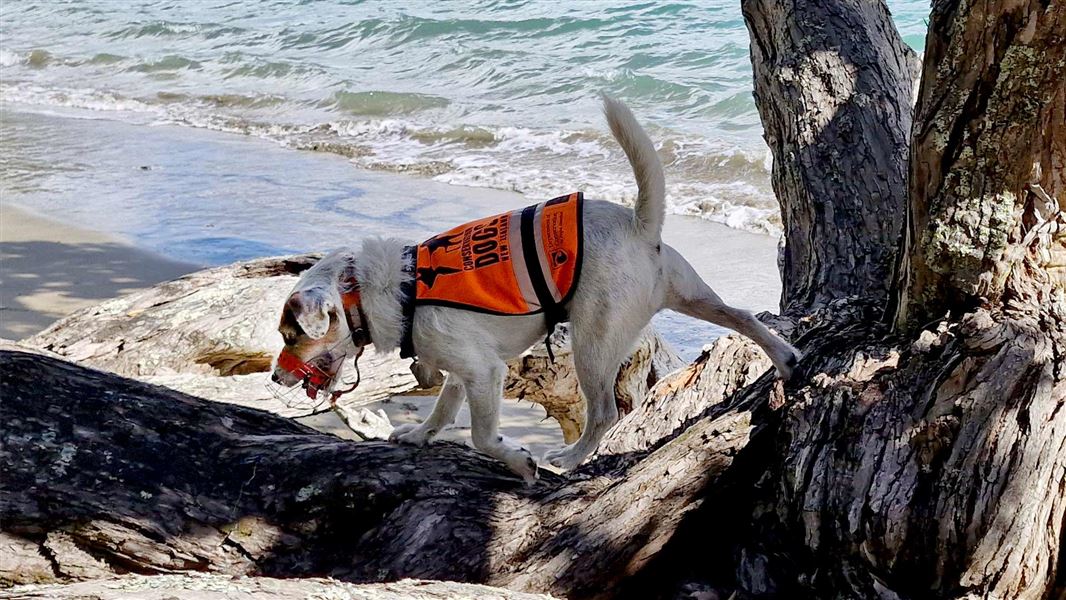Date: 24 April 2024
In early April, a member of the public reported mammalian footprints on the sand of the 4.5 ha pest-free island, which is situated less than 1 km from Mahurangi East Peninsula. Te Hapua Island Scenic Reserve is a significant redress site in the Ngāti Paoa Treaty Settlement.
DOC sent rodent detection dogs and their handlers to the island to check for the presence of the predator. While on the island a dog-handler spotted a Norway rat, and the specially trained conservation dogs led the handlers to a burrow.
This prompted a DOC incursion response, setting traps and tracking tunnels on Friday 19 April to gather information about the rat or rats, and eradicate the pest. One rat was caught on Monday followed by another today.
Although two rats have been caught, the regular re-setting and checking of traps will continue until DOC is satisfied there are no further rodents.
Kat Lane, Operations Manager for Inner Hauraki Gulf Islands says it is important to keep Te Haupa free of mammalian pests.
“Keeping Te Haupa pest-free supports all wildlife and especially protects nesting sites for tūturiwhatu/New Zealand dotterel, Ōi/grey faced petrel and kororā/little blue penguin.”
“Thankfully, eggs are laid around June and July for these species, so there is a lower risk to predation currently. However, we’re working hard to make sure the island is cleared of any further pests as soon as possible.”
It is unknown how the rats came ashore – but the pests can swim or hitch rides on boats. DOC will also send a mustelid scat detection dog handler team to confirm the absence of ferrets, stoats and weasels.
Kat says the public is key to keeping these special conservation spaces safe for wildlife.
“We’re thankful for the person who reported to DOC the signs of mammal pests on the island. Boat and kayak owners can also support wildlife on pest-free islands by checking your vessel and gear for rats, mice, ants and skinks before departure. You can set pest traps on your vessel and in the area it is stored.”
Rats can have a major impact on a range of wildlife because they eat birds, seeds, snails, lizards, fruit, wētā, eggs, chicks, larvae and flowers. The varied diet of rats also makes them competitors with native wildlife for food sources.
If you spot a rat, mouse, stoat or cat on a pest-free island, contact DOC immediately on 0800 DOC HOT (0800 362 468).
Contact
For media enquiries contact:
Email: media@doc.govt.nz
